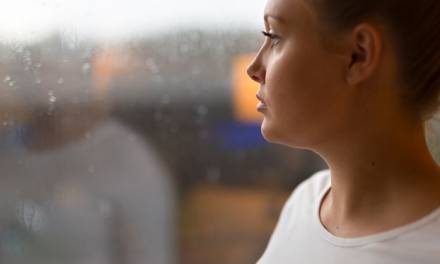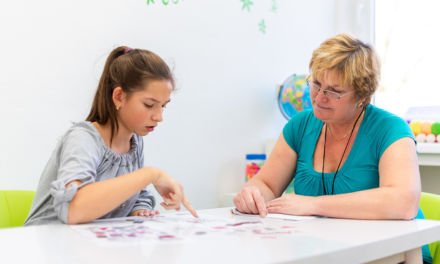The news in recent days has been dominated by the death of Caroline Flack, with the presenter previously opening up on her battles with depression and anxieties in the public eye.
The topic has reinvigorated conversations about mental health. The issue heavily affects teenagers, with 98% of teachers and school leaders admitting to coming into contact with pupils experiencing mental health problems in 2017.
But what is the current practice for addressing mental health in schools? What else can be done?
How does school affect mental health?
A survey of 8,600 school leaders, teachers and support workers found that 83% had witnessed an increase in the number of children with poor mental health.
Last week, the National Education Union (NEU) began three days of strikes, due to lack of funding in sixth form and colleges. The Sixth Form Colleges Association found that nearly half of all colleges and schools with sixth forms have had to reduce mental health support during 2019.
Exams are frequently cited as one of the worst stressors which pupils face, 82% of teachers survey by the NEU in 2018 found that tests and exams had the largest negative impact on mental health. Councselling service, Childline, reported receiving 3,135 calls from young people during the SATs and GCSE season in 2016-17, an increase of 11% over the previous two years.
Problems sleeping, eating, school avoidance, panic anxiety, self-harm and suicide are all increasingly reported among young people during exam time.
Mental health awareness in schools
Action for schools in dealing with mental health is set out in the Department for Education’s Mental health and behaviour in schools white paper here. It states:
When schools suspect a pupil has a mental health problem, they should use the graduated response process (assess – plan – do – review) to put support in place. There are a number of identification and measurement tools, such as the Strengths and Difficulties Questionnaire (SDQ) and Boxall Profile, which can support this process.
Schools should ensure they have clear systems and processes in lace for early intervention and identification, referral to experienced skilled professionals, and clear accountability systems.
The report explains the school has responsibility for the following:
Prevention: creating a safe and calm environment where mental health problems are less likely, improving the mental health and wellbeing of the whole school population, and equipping pupils to be resilient so that they can manage the normal stress of life effectively. This will include teaching pupils about mental wellbeing through the curriculum and reinforcing this teaching through school activities and ethos.
Identification: recognising emerging issues as early and accurately as possible,
Early support: helping pupils to access evidence based early support and interventions; and
Access to specialist support: working effectively with external agencies to provide swift access or referrals to specialist support and treatment.
Schools are required to produce a range of policies which can be used to promote and support mental health and wellbeing, either as a statutory requirement, or good practice as recommended by the Department for Education.
Schools are under a duty to use their ‘best endeavours’ to identify pupils with Special Educational Needs (SEN) meet their pupils’ special educational needs. As part of the duty, it is important that schools consider how best to use some of their SEN resources to provide support for pupils with mental health difficulties.
The report also states the school has a responsible to provide a culture which supports positive mental health:
The culture, ethos and environment of the school can have a profound influence on both pupil and staff mental wellbeing. Environments that are hostile, aggressive chaotic or unpredictable can be harmful to mental health, and can lead to stressful teaching and working conditions.
To create the culture, the leadership team should set out their vision for the school. This means setting clear behaviour expectations, that embody high expectations from all, conveyed consistently throughout the whole school community. The vision should be underpinned by a clear system of rewards and sanctions and an accountability system that sets expectations for all staff, parents and pupils to play their part as much as they are able; and should be aimed at all times to the mutual benefit of every member of the school community.
You can read about the signs of mental health here.
What should a school do to support a child with mental health difficulties?
If a school suspects that a pupil is having mental health difficulties, they should put in place:
An assessment: to establish a clear analysis of pupil’s needs
A plan: to set out how the pupil will be supported
An action: to provide support
A review protocol: to assess the effectiveness of the provision and lead to changes where necessary.
It is important that schools provide support to pupils at times where their lives are disrupted due to difficult events. These include loss or separation, the birth of a sibling, moving house or traumatic experience.
Schools should work with mental health organisations to provide access for students with mental health.
How to determine between mental health and exclusions
Schools should consider any contributing factors that are identified after an incident of poor behaviour has occurred, which could point towards pupils’ mental health problems.
Teaching mental health in schools
Mental health will be on the school curriculum from September 2020, Education Secretary Damian Hinds announced last year.
At primary school, pupils will learn that mental wellbeing is a normal part of daily life – as well as some emphasis on getting enough sleep, spending time outdoors and seeing friends. This will link with nutrition, and recognise that mental and physical health are linked.
Health Education will also be part of the curriculum in secondary schools from this autumn, and will be rolled out alongside relationship and sex education classes.
I want to make sure that our children are able to grow to become happy and well-rounded individuals who know how to deal with the challenges of the modern world.
Good physical and mental health is also at the heart of ensuring young people are ready for the adult world. By making health education compulsory we are giving young people the tools they need to be ready to thrive when they leave school.
How do other countries deal with mental health in schools?
In the United States, the Mental Health in Schools Act 2017 provides a “comprehensive school mental health program that is culturally and linguistically appropriate, trauma-informed and age appropriate.
The UK is very heavily focused on testing pupils, however student wellbeing is just as important as academic outcomes.
Finland epitomises a progressive education policy, only testing pupils aged 18. In 2016 it ranked fourth in the world for reading in the last Programme for International Student Assessment (PISA). The United Kingdom appeared at 22nd in the same list.
Recommendations for improving mental health in schools
According to a report by YoungMinds and Cello Talking Self Harm (2012) two thirds of teachers are worried that if they have a conversation with a teenager about self-harm they might make it worse. Focus is on schools to build teachers’ confidence and help them to understand the language to use.
If a teacher notices that a child is expressing symptoms of poor mental health, it is advised that they take the student to one side to ask open-ended questions using empathetic language.
There is also concern about mental health in teachers – with around 5% of teachers suffering a long-lasting health problem.
How can EDLounge help?
EDLounge Limited provides support for students with poor mental health, who may be suited to mainstream classrooms.
EDClass+ caters for pupils with mental health problems, with 11,000 lessons, live teaching and support. The eyes-on learning facility when used off-site means teachers can inform the school if anything of concern appears on camera.
EDLounge Limited was inspected by Ofsted in 2019. You can read the inspection report, as well as how the product has helped to improve attendance in schools here.
To find out more and get in touch with us, click here.
To request a demonstration, click here.









